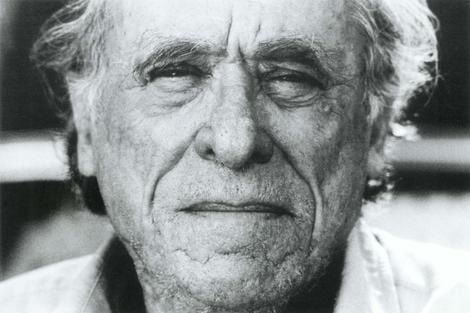
“A lively portrait of American literature’s ‘Dirty Old Man’.” -Library Journal A former postman and long-term alcoholic who did not become a full-time writer until middle age, Charles Bukowski was the author of autobiographical novels that captured the low life-including Post Office, Factotum, and Women-and made him a literary celebrity, with a major Hollywood film (Barfly) based on his life. The book's conclusion, "Summing Up: Giving Bukowski His Due," predicts that Bukowski will be read far into the 21st century. As general postmodern phenomenon, he blends the democratic accessibility of populist writing with the adventurous gesturing of the avant-garde, and the result is direct, daring, truthful, and funny.

'Institution Art,'" classifies this challenging author as both populist and avant-garde. Bukowski's Bildungsroman, Ham on Rye, shows Chinaski as victim, practitioner, and critic of male violence, with the last role figuring into his other work too. Chapter Three, "Problems of Masculinity: At 'Home,' at Work, at Play," tackles the knee-jerk assessment of Bukowski as just a sexist "Dirty Old Man." Michael Kaufman's "triad of men's violence" (against women, other men, and themselves) explains the general Bukowski persona as a complicated gender construct.

Harnessing Timothy Dow Adams' concept of "strategic lying," the chapter follows Bukowski's thinly veiled personae through three stages-first through the attention-getting "Dirty Old Man," then responding to the attention and (re)defining himself, finally culminating in "Henry Chinaski," the hero of Bukowski's five autobiographical novels. Chapter Two, "Bukowski Among the Autobiographers," pursues Bukowski's comprehensive autobiographical project. Chapter One, "Placing Bukowski," introduces Bukowski's amazing life and career and relates his work to influential predecessors (primarily Ernest Hemingway and John Fante) and four contemporaries (Raymond Carver, Kurt Vonnegut, Frederick Exley, and Hunter Thompson). American Ways." Begun before Bukowski died in 1994, Charles Bukowski: Autobiographer, Gender Critic, Iconoclast was the first doctoral dissertation on his prose and poetry up to that date, and it is offered now for fans and academics alike-no more need for black-market sales. Run With The HuntedĬharles Bukowski disliked academics, as this academic and readable book points out from page one onward of its introduction, "Charles Bukowski vs. In this definitive biography Barry Miles, celebrated author of Jack Kerouac: King of the Beats, turns his attention to the exploits of this hard-drinking, belligerent wild man of literature. His novels sold millions of copies worldwide in dozens of languages. During his lifetime he published more than forty-five books of poetry and prose, including the novels Post Office, Factotum, Women and Pulp. Much of his young life epitomised the style of the Beat generation - riding Greyhound buses, bumming around and drinking himself into a stupor. Brought up by a violent father, Bukowski suffered childhood beatings before developing horrific acne and withdrawing into a moody adolescence.

It was in the evenings that he would put on a classical record, open a beer and begin to type.
CHARLES BUKOWSKI SERIES
His heroes were the panhandlers and hustlers, the drunks and the hookers, his beat the racetracks and strip joints and his inspiration a series of dead-end jobs in warehouses, offices and factories.

'Fear makes me a writer, fear and a lack of confidence' Charles Bukowski chronicled the seedy underside of the city in which he spent most of his life, Los Angeles.


 0 kommentar(er)
0 kommentar(er)
